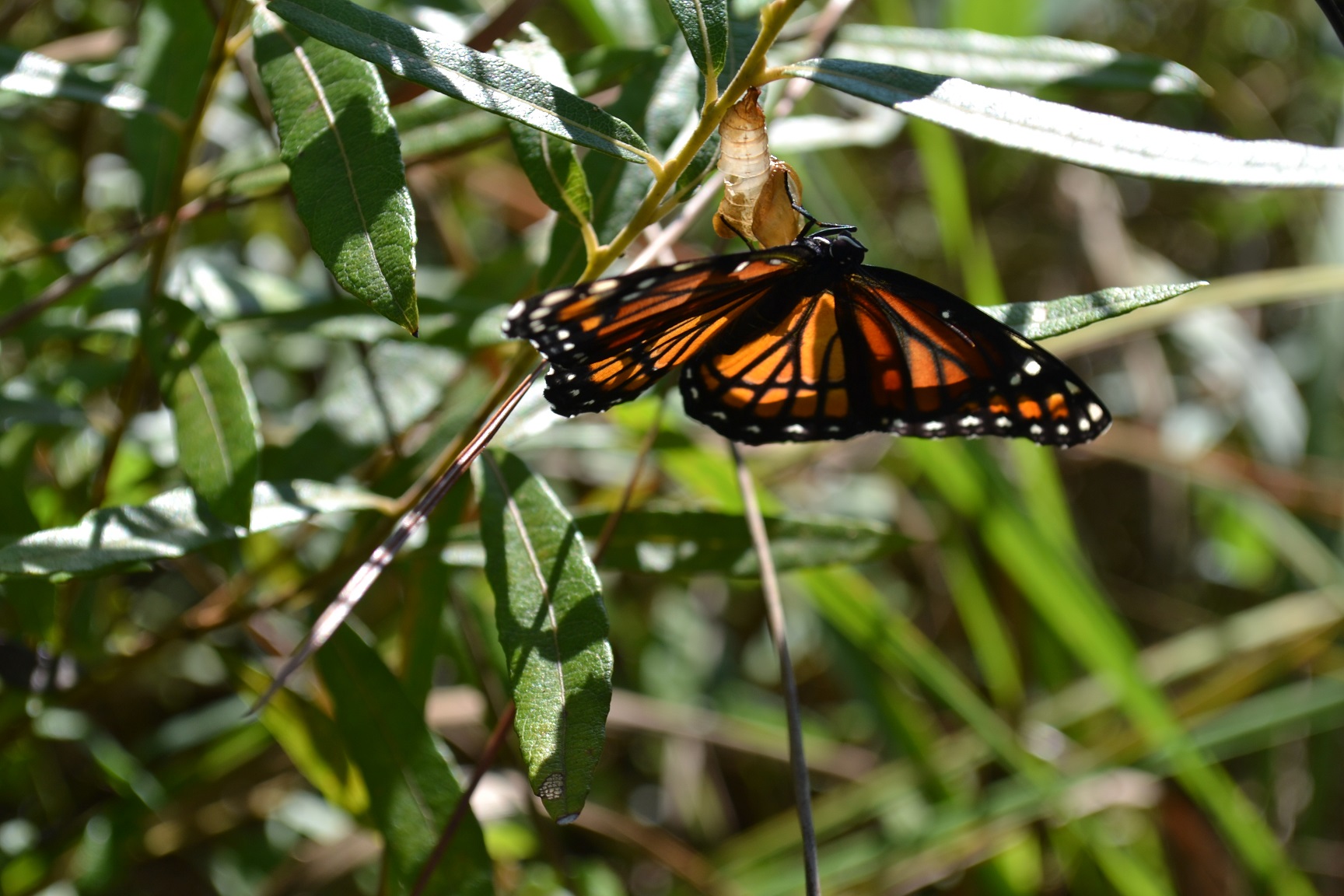Difference between revisions of "Salix humilis"
(→Description) |
(→References and notes) |
||
| Line 41: | Line 41: | ||
</gallery> | </gallery> | ||
==References and notes== | ==References and notes== | ||
| + | Radford, Albert E., Harry E. Ahles, and C. Ritchie Bell. Manual of the Vascular Flora of the Carolinas. 1964, 1968. The University of North Carolina Press. 358. Print. | ||
Revision as of 21:03, 8 February 2016
Common name: Prairie Willow
| Salix humilis | |
|---|---|

| |
| Salix humilis with Viceroy butterfly just enclosed from chrysalis. Wade Tract, GA. Photo by Kevin Robertson | |
| Scientific classification | |
| Kingdom: | Plantae |
| Division: | Magnoliophyta - Flowering plants |
| Class: | Magnoliopsida - Dicotyledons |
| Order: | Salicales |
| Family: | Salicaceae |
| Genus: | Salix |
| Species: | S. humilis |
| Binomial name | |
| Salix humilis Marshall | |

| |
| Natural range of Salix humilis from the Ladybird Johnson Wildflower Database. | |
Contents
Taxonomic notes
Description
"Catkins firms, not pendulous. Staminate flower with 2-8 stamens subtended by 1 or 2 glands. Leaves usually more than 3X as long as wide; buds with 1 scale. Capsule basically ovoid." - Radford et al 1964
"Shrub; branchlets usually cinereous. Leaves glabrous above, glaucous and usually pubescent beneath, coarsely reticulate, oblanceolate, obovate, or elliptic, 1.5-11.5 cm long, 0.6-3 cm wide, acute or obtuse, entire or undulate-crenulate, revolute, base cuneate petioles usually pubescent, 1-9 mm long. Stamens 2, filaments glabrous. Fruiting catkins 1.5-3 cm long, 15-18 mm broad, subsessile; capsules grayish, pubescent, 7-9 mm long, pedicels 1-2 mm long." - Radford et al 1964
Distribution
Ecology
Habitat
Phenology
Seed dispersal
Seed bank and germination
Fire ecology
Pollination
Use by animals
Diseases and parasites
Conservation and Management
Cultivation and restoration
Photo Gallery
References and notes
Radford, Albert E., Harry E. Ahles, and C. Ritchie Bell. Manual of the Vascular Flora of the Carolinas. 1964, 1968. The University of North Carolina Press. 358. Print.